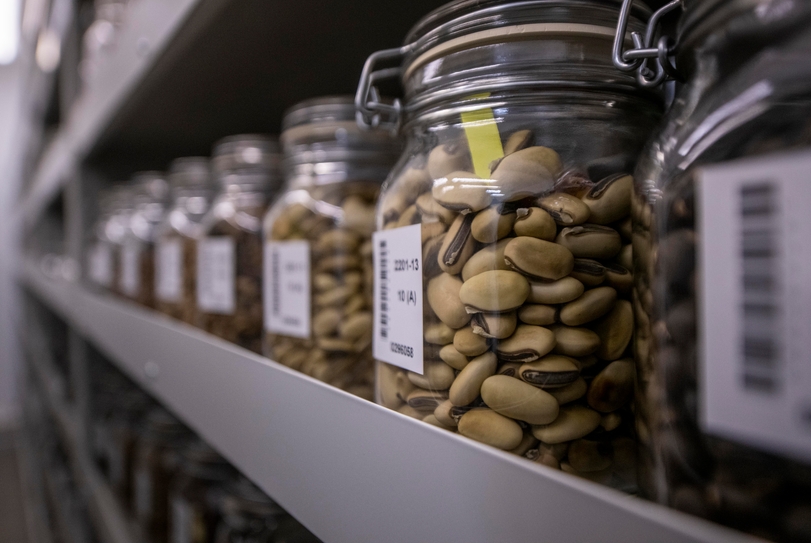The Germplasm Bank of Wild Species in southwest China's Yunnan Province, the largest of its kind in Asia, has preserved over 11,000 kinds of wild plant seeds, according to the Kunming Institute of Botany under the Chinese Academy of Sciences (CAS).
By the end of 2023, the seed bank preserved more than 94,000 plant seeds of over 11,000 species and housed the seeds of over one-third of wild plants in China, Cai Jie, director of the seed bank's germplasm collection center, told Xinhua on Wednesday.
As the genes of most plants are contained in their seeds, germplasm resources have become carriers of plants' genetic information. A seed bank is the most important facility for preserving such resources.
Founded in 2007, the seed bank affiliated to the CAS institute includes a seed pool, DNA bank, microbial bank, animal germplasm resource bank, and other sectors. Dubbed the "Noah's Ark" of plants in China, the facility is a leading comprehensive research and preservation facility for the germplasm of rare and endangered plants worldwide and the largest wildlife germplasm pool in Asia.
Cai said that in addition to effectively preserving wild plant seeds, plant tissue materials, plant DNA, large fungi, microbial strains, and animal genetic resources, the germplasm bank also possesses advanced genetic resource databases and information sharing management systems, as well as a technology system and research platform integrating functional gene detection, cloning, and validation.
Moreover, the germplasm bank built the largest plant DNA barcode database and identification platform in China. Based on DNA barcoding technology, the bank has discovered cryptic and new species within various taxa, such as the Chinese yew, Chinese giant salamander, and snakes, according to Cai.
These findings provide a crucial foundation for safeguarding national biosecurity and contribute to biodiversity conservation and sustainable utilization in China, he said. (Xinhua)

Image by KIB
(Editor:YANG Mei)




